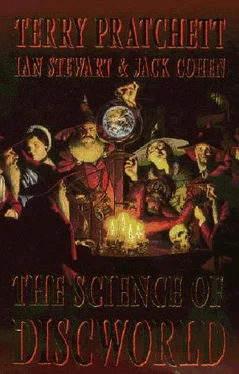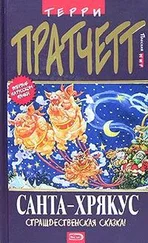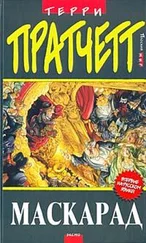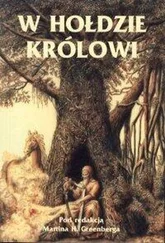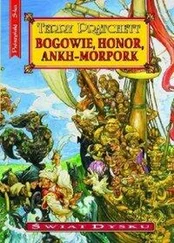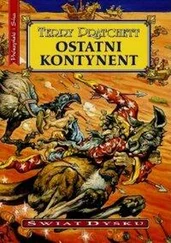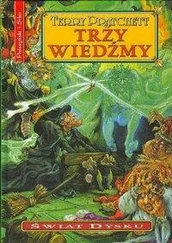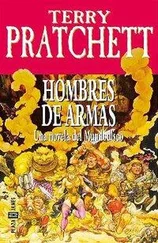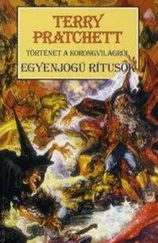Terry Pratchett - Science of Discworld
Здесь есть возможность читать онлайн «Terry Pratchett - Science of Discworld» весь текст электронной книги совершенно бесплатно (целиком полную версию без сокращений). В некоторых случаях можно слушать аудио, скачать через торрент в формате fb2 и присутствует краткое содержание. Жанр: Фантастика и фэнтези, на английском языке. Описание произведения, (предисловие) а так же отзывы посетителей доступны на портале библиотеки ЛибКат.
- Название:Science of Discworld
- Автор:
- Жанр:
- Год:неизвестен
- ISBN:нет данных
- Рейтинг книги:4 / 5. Голосов: 1
-
Избранное:Добавить в избранное
- Отзывы:
-
Ваша оценка:
- 80
- 1
- 2
- 3
- 4
- 5
Science of Discworld: краткое содержание, описание и аннотация
Предлагаем к чтению аннотацию, описание, краткое содержание или предисловие (зависит от того, что написал сам автор книги «Science of Discworld»). Если вы не нашли необходимую информацию о книге — напишите в комментариях, мы постараемся отыскать её.
Science of Discworld — читать онлайн бесплатно полную книгу (весь текст) целиком
Ниже представлен текст книги, разбитый по страницам. Система сохранения места последней прочитанной страницы, позволяет с удобством читать онлайн бесплатно книгу «Science of Discworld», без необходимости каждый раз заново искать на чём Вы остановились. Поставьте закладку, и сможете в любой момент перейти на страницу, на которой закончили чтение.
Интервал:
Закладка:
However, it may have been the other way round. The invention of the anus by triplobiasts may have changed the ecology of the seas. Faeces would have dropped to the sea-bed, where bacteria could specialize in breaking them down. Other organisms could then become filter feeders, living on those bacteria, perhaps sending their larvae up into the plankton for dispersal, as modern filter-feeders do. Several new ways of life depended on this primeval composting system. And it's possible that the successful return of phosphorus and nitrogen into the marine cycles led to an explosion of algae, which reduced atmospheric carbon dioxide, cut back on the greenhouse effect, and triggered the big freeze.
Fortunately for us, the big freeze wasn't quite long enough, or cold enough, to kill off everything. (Bacteria in volcanic vents on the ocean floor and in the Earth's crust would have survived no matter what, but evolution would have been set back a long, long way.) So when the Earth warmed, life exploded into a fresh, competition-free world. Paradoxically, a major reason why we are here today may be that we very nearly weren't. Our entire evolutionary history is full of these good news-bad news scenarios, where life leaps forward joyously over the bodies of the fallen ...
Rincewind can be forgiven for feeling that Roundworld has it in for him. Life has suffered from many different kinds of natural disaster. Here are two more. In the Permian/Triassic extinction of 250 million years ago, 96% of all species died within the space of a few hundred thousand years. William Hobster and Mordeckai Magaritz think this happened because they suffocated. Carbon isotopes show that a lot of coal and shale oxidized in the run-up to the extinction, probably because of a fall in sea level, which exposed more land. The result was a lot more carbon dioxide and a lot less oxygen, which was reduced to half today's level. Land species were especially badly affected.
Another global extinction, though less severe, occurred 55 million years ago: the Palaeocene/Eocene boundary. In cores of sediment drilled from the Antarctic, James Kennett and Lowell Stott discovered evidence of the sudden death of a lot of marine species. It seemed that trillions of tons (tonnes) of methane had burst from the ocean, sending temperatures through the roof, methane being a powerful greenhouse gas. Jenny Dickens suggested that the methane was released from deposits of methane hydrates in permafrost and on the seabed. Methane hydrates are a crystal lattice of water enclosing methane gas: they are created when bacteria in mud release the gas and it becomes trapped.
Coincidentally, one of the main results of the Palaeocene/Eocene extinction was a burst of evolutionary diversity, leading in particular to the higher primates, and us. Whether something is a disaster depends on your point of view. Rocks may not have a point of view, as Ponder Stibbons pointed out, but we certainly do.
GREAT LEAP SIDEWAYS
I THINK IT LOOKS MORE LIKE A HOGSWATCHNIGHT ORNAMENT,' said the Senior Wrangler later, as the wizards took a pre-dinner drink and stared into the omniscope at the glittering white world. 'Quite pretty, really.'
'Bang go the blobs,' said Ponder Stibbons.
'Phut,' said the Dean, cheerfully. 'More sherry, Archchancellor?'
'Perhaps some instability in the sun ...' Ponder mused.
'Made by unskilled labour,' said Archchancellor Ridcully. 'Bound to happen sooner or later. And then it's nothing but frozen death, the tea-time of the gods and an eternity of cold.'
'Sniffleheim,' said the Dean, who'd got to the sherry ahead of everyone else.
'According to HEX, the air of the planet has changed,' said Ponder.
'A bit academic now, isn't it?' said the Senior Wrangler.
'Ah, I've got an idea!' said the Dean, beaming. 'We can get HEX to reverse the thaumic flow in the cthonic matrix of the optimized bi-direction octagonate, can't we?'
'Well, that's the opinion of four glasses of sherry,' said the Archchancellor briskly, to break the ensuing silence. 'However, if I may express a preference, something that isn't complete gibberish would be more welcome next time, please. So, Mister Stibbons, is this the end of the world?'
'And if it is,' said the Senior Wrangler, 'are we going to have a lot of heroes turning up?'
'What are you talking about, man?' said Ridcully.
'Well, the Dean seems to think we're like gods, and a great many mythologies suggest that when heroes die they go to feast forever in the halls of the gods,' said the Senior Wrangler. 'I just need to know if I should alert the kitchens, that's all'
'They're only blobs,' said Ridcully. 'What can they do that's heroic?'
'I don't know ... stealing something from the gods is a very classical way,' the Senior Wrangler mused.
'Are you saying we should check our pockets?' said the Archchancellor.
'Well, I haven't seen my penknife lately,' said the Senior Wranger. 'It was just a thought, anyway.'
Ridcully slapped the despondent Stibbons on the back.
'Chin up, lad!' he roared. 'It was a wonderful effort! Admittedly the outcome was a lot of blobs with the intelligence of pea soup, but you shouldn't let utter hopeless failure get you down.'
'We never do,' said the Dean.
It was after breakfast next day when Ponder Stibbons wandered into the High Energy Magic building. A scene of desolation met his eye. There were cups and plates everywhere. Paper littered the floor. Forgotten cigarettes had etched their charred trails on the edge of desks. A half-eaten sardine, cheese and blackcurrant pizza, untouched for days, was inching its way to safety.
Sighing, he picked up a broom, and went over the tray containing HEX's overnight write-out.
It seemed a lot fuller than he would have expected.
'Not just blobs, there's all sorts of stuff! Some of it's wiggling ...'
'Is that a plant or is it an animal?'
'I'msure it's a plant.'
'Isn't it... walking ... rather fast?'
'I don't know I've never seen a plant walking before.'
The wizardery of UU was filtering back in the building as the news got around. The senior members of the faculty were clustered around the omniscope, explaining to one another, now that the impossible had happened, that of course it had been inevitable.
'All those cracks under the sea,' said the Dean. 'And the volcanoes, of course. Heat's bound to build up over time.'
'That doesn't explain all the different shapes, though,' said the Senior Wrangler. 'I mean, the whole sea looks like somebody had just turned over a very big stone.'
'I suppose the blobs had time to consider their future when they were under the ice,' said the Dean. 'It suppose you could think of it as a very long winter evening.'
'I vote for lavatories,' said the Lecturer in Recent Runes.
'Well, I'm sure we all do,' said Ridcully. 'But why at this point?'
'I mean that the blobs were ... you know ... excusing themselves for millions and millions of years, then you're get a lot of, er, manure ...'the Lecturer ventured.
'A shitload,' said the Dean.
'Dean! Really!'
'Sorry, Archchancellor.'
'... and we know dunghills absolutely teem with life ...' the Lecturer went on.
'They used to think that rubbish heaps actually generated rats,' said Ridcully. 'Of course, that was just a superstition. It's really seagulls. But you saying life is, as it were, advancing by eating dead men's shoes? Or blobs, in this case. Not shoes, of course, because they didn't have any feet. And wouldn't have been bright enough to invent shoes even if they did. And even if they had been, they couldn't have done. Because there was, at that time, nothing from which shoes might be made. But apart from that, the metaphor stands.'
Читать дальшеИнтервал:
Закладка:
Похожие книги на «Science of Discworld»
Представляем Вашему вниманию похожие книги на «Science of Discworld» списком для выбора. Мы отобрали схожую по названию и смыслу литературу в надежде предоставить читателям больше вариантов отыскать новые, интересные, ещё непрочитанные произведения.
Обсуждение, отзывы о книге «Science of Discworld» и просто собственные мнения читателей. Оставьте ваши комментарии, напишите, что Вы думаете о произведении, его смысле или главных героях. Укажите что конкретно понравилось, а что нет, и почему Вы так считаете.
